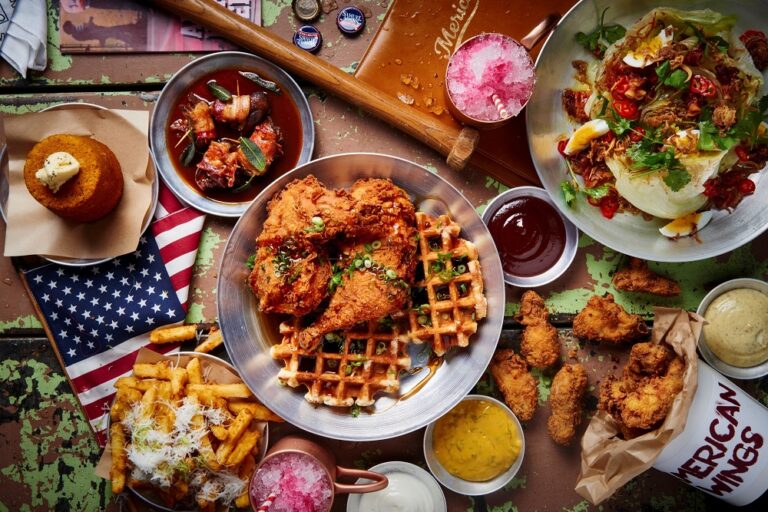Introduction: Understanding Indigenous Culture in Canada
Indigenous culture plays a significant role in Canadian cuisine. The Indigenous peoples of Canada have been living on the land for thousands of years and have developed a deep understanding of the local environment. Their traditional food practices reflect this knowledge and have influenced the cuisine of Canada as a whole. Understanding the history and significance of Indigenous food practices is essential to fully appreciate the role that Indigenous culture plays in Canadian cuisine.
Pre-Contact Traditional Foods: Bison, Fish, and Berries
Before the arrival of Europeans, Indigenous peoples in Canada relied on a variety of traditional foods. Bison, fish, and berries were staples of their diet, with each food holding significant cultural and spiritual importance. Bison provided meat and hides for clothing and shelter, while fish were plentiful in the rivers and lakes of Canada. Berries were often used as a sweetener and flavoring in dishes. These foods were carefully harvested and prepared using traditional methods that have been passed down through generations.
Food as a Symbolic Element of Indigenous Culture
Food is a symbolic element of Indigenous culture, representing a deep connection to the land and the environment. Traditional food practices were often accompanied by ceremonies and rituals that recognized the importance of the food and the role it played in the community. For example, the hunting of a bison was often accompanied by a ceremony thanking the animal for its sacrifice and asking for continued abundance. These practices not only ensured the survival of the community but also reinforced their cultural identity.
The Arrival of the Europeans: Impact on Indigenous Food Practices
The arrival of Europeans in Canada had a significant impact on Indigenous food practices. The introduction of new foods, such as wheat and dairy products, changed the traditional diet of Indigenous peoples. Many Indigenous communities were forced to rely on government rations, which often consisted of poor-quality, processed foods. This shift had a detrimental effect on the health of Indigenous peoples, leading to an increase in chronic diseases such as diabetes and heart disease.
The Evolution of Indigenous Cuisine in Modern Canada
In recent years, there has been a resurgence of interest in Indigenous cuisine in Canada. Many Indigenous chefs are using traditional ingredients and techniques to create modern, innovative dishes that reflect their cultural heritage. This evolution of Indigenous cuisine has helped to preserve traditional food practices while also introducing them to a wider audience.
The Role of Indigenous Food in Contemporary Canadian Cuisine
Indigenous food has become an important element of contemporary Canadian cuisine. Many restaurants across Canada now offer Indigenous-inspired dishes, using locally sourced ingredients and traditional techniques. This has helped to raise awareness of Indigenous food practices and their cultural significance.
Indigenous Chefs: Advocating for Traditional Food and Practices
Indigenous chefs have played a significant role in promoting traditional food practices and raising awareness of Indigenous cuisine. Through their cooking, they are helping to preserve traditional knowledge and promote healthy, sustainable food systems. Many Indigenous chefs are also advocating for the recognition of Indigenous food as a fundamental human right and calling for increased support for Indigenous food practices.
The Future of Indigenous Food in Canadian Cuisine: Challenges and Opportunities
Despite the growing interest in Indigenous cuisine, there are still significant challenges to be overcome. Many Indigenous communities continue to face food insecurity and lack access to healthy, affordable food. There is also a need for greater recognition of Indigenous food practices and the role they play in Canadian cuisine. However, there are also many opportunities to promote Indigenous food practices and support Indigenous-led food systems. By working together, we can ensure the continued evolution and preservation of Indigenous cuisine in Canada.

